- Home
- Juliet Marillier
The Well of Shades Page 14
The Well of Shades Read online
Page 14
“Who did you say you were?” The question came smoothly, like an expertly cast line.
“I didn’t, my lady. My name’s Aoife.”
“Maeve tells me someone’s abused you, Aoife. She says your body bears a record of many beatings, not to speak of the fact that you seem half starved. On the other hand your child, though thin, has evidently been well looked after. Are you sure you’ve told the truth? Is she really yours? She isn’t perhaps the offspring of a cruel mistress, whom you stole for reasons of your own? This doesn’t add up, Aoife. I know Maeve’s told you what you’ve been accused of. Unless you’re half-witted, and I can see that’s not so, you must surely realize how serious this matter is. Telling lies cannot aid your cause. If you have been ill-treated, you should give me the details. If you have taken a man’s life, you must confess that also. Account for yourself, and make it the truth! Lies do not win power; that path is sure to see you lose your child. Don’t waste what strength you have in fighting me, young woman. Use it to make your case.”
“I’m not in a court of law now,” Eile said, lifting her chin. “Give me one reason why I should trust you.” She heard Maeve’s gasp of horror behind her. Saraid was murmuring to the dog.
The Widow sighed, leaning back in her grand chair. “Your existence up till now has not given you great cause to trust, I imagine,” she said levelly. “In fact, I do not require trust from you, only the truth. Folk do not customarily demand that I prove my goodwill. I stand as chieftain of this region in my late husband’s stead. I have the power to decide your future. You will be fairly treated if you are honest, Aoife. I know that is hard to believe, but it is true, in my territories at least. If you conduct your business with the attitude of a wildcat shut up in a little cage, all snarls and biting, you make it hard for folk to help you.”
“He helped us. Faolan. All he got for it was a beating. You still say I should trust you? Show me that he’s all right and I’ll answer all the questions you want.” Eile was pleased with her tone. It sounded bold and challenging; the lady could not know how she was quaking inside.
“Maeve,” said the Widow, “take the child away.”
“No!” They could not do this, it wasn’t fair, she must stop them. “Leave her alone!” As Eile spoke, one of the guards moved down to position himself beside her, spear across to block her path. Beyond that barrier she saw the housekeeper take Saraid’s hand and lead her toward the doorway. The child looked back, big eyes anxious, but kept her silence. The little dog pattered after them. “You can’t take her!” Gods, it was happening, what she feared most. Saraid would vanish out that door and she’d never see her daughter again.
“You think not?” the Widow said. “It’s as easy as one, two, three. Don’t look like that, girl, we treat children kindly here. Indeed, I think your daughter, if such she is, may be better off at Blackthorn Rise, growing up among the children of my household and, in time, being trained in skills that will provide her with a home and a living, than wandering the byways with her mother, never more than half a step from trouble.”
Eile made a dash for the doorway. Before she had taken three steps the guard had dropped the spear and grabbed her around the arms, halting her flight. She tried to fight him, but he simply held on as she struggled and kicked, and the Widow watched in impassive silence. “It’s not fair!” Eile shouted. “She’s only three! She won’t understand! What have we ever done to you?”
After a time it became apparent that all her efforts would change nothing. The second guard had stationed himself in front of the door, and there was no other apparent exit. Saraid was gone.
The Widow waited. Eile drew a sobbing breath, then said, “Tell your henchman here to let go. I need to wipe my nose. Then ask your poxy questions. She’d better not be harmed or—”
“Enough!” said the Widow. “No threats. Seamus, let her go. Fetch a stool; the girl needs to sit down. And some water. Compose yourself, Aoife. Or would that be Eile, by any chance?”
Eile wiped her nose on the sleeve of her borrowed shirt and stiffened her back. “How much do you know already?” she asked.
“I want you to tell me all of it. Who is the child’s father?”
Eile flinched. Where had this question come from? “I’m not saying that. I’ll tell about what happened. The other doesn’t matter. Saraid’s mine. Her father’s dead.”
“I see. And what about your father and mother? Where are they? What are their names?”
“Do you think I’d be here like this if they were still alive?”
“Their names?”
“Deord. Saraid. My daughter’s named for her, but my mother never knew I had a child.” No tears. She had to get this right from now on, win Saraid back, and then, at the first opportunity, they’d be out of this cursed place. How dare this woman play games with little children as the pieces?
“What was your father’s trade, Eile?”
“He was a mariner. A traveler.” That barely touched it: the epic adventures, the wondrous tales. The shell of a man that came home from Breakstone. It did not encompass the love, the hope, the shattering of her fragile dream that everything could one day be all right again.
“Sit down,” the Widow said as the guard set a stool beside Eile. “Now give me a simple, truthful account of the last few days.”
Eile drew a deep breath. “I stabbed my aunt’s husband in the heart,” she said. “He was… hurting me. When I knew Father wasn’t coming home, I had to do it. For her; for Saraid. Then we ran away. If you want me to say I’m sorry, I can’t; not if you expect the truth.”
The Widow nodded, features composed. “When you knew your father wasn’t coming home?”
“I thought he’d come back someday. I hoped he would. But he died. He never did come.” Eile paused to get her voice under better control. “That’s all I have to tell. Let Saraid come back in. She’s not used to strangers.”
“The man who was with you; the one you call Faolan. He said you were his wife, and the child his daughter. Was that a lie?”
“He was trying to protect us. To get us safely away.”
“Why would this man lie for a girl who had just murdered her kinsman? Is he well known to you?”
“My father’s friend. At least, that’s what he said. I only met him two days ago.” A curious feeling was coming over Eile as she watched the woman’s face: the feeling that the Widow was not interested in her or Saraid at all. The growing conviction that the one she’d been wanting to know about all along was Faolan. There was something wrong here. Eile could see it in the Widow’s eyes when she spoke his name. He was in danger.
“Answer the question!” the Widow rapped out. “Why would he lie for you? What promise did he extract from you in return?”
Eile stared at her, bemused. “Promise? I don’t know what you mean.”
“Don’t be disingenuous, girl. The fellow’s a stranger to you; he could be anyone. You have no money, no resources; you have only one thing a man’s likely to want, and evidently you’re not reluctant to offer that. Why else would this Faolan take up with you?”
Eile felt the blood rush to her cheeks, then as swiftly ebb. It didn’t seem to matter that insults were more or less her daily bread; that did not make them any the less hurtful. “Think what you like,” she said, quite unable to summon a pretense of civility.
“What I think is that you’ve been ill-treated and that it’s very fortunate you now find yourself at Blackthorn Rise, where we can provide shelter for you and your child. If we’d handed you over to those fellows from Cloud Hill you’d have had far rougher handling, I assure you. How old are you, Eile?”
“Sixteen. And, before you ask, my daughter’s three, and no, I didn’t have her because I was wanton, but because a man forced me. If I’d had a knife and a little more courage back then, I’d have spared myself four years of bruises and worse. And if I had to kill him all over again I wouldn’t hesitate.”
“And Faolan?”
“I
told you. He’s my father’s friend. He didn’t ask me for anything. He brought breakfast, and he left me his knife.”
“And that was the best gift you ever had,” said the Widow with a strange little smile.
Eile did not answer. This was an odd game indeed.
“I’ll need more,” the Widow said. “More details; more of your background. But not now. Go to your daughter. My guess is that she’ll be in the kitchen with a lot of folk fussing over her. She’s a pretty little thing. It takes a lot to bring out Maeve’s motherly streak. Go on, now.”
“I—I need to know about Faolan. Where is he? Why did you let them beat him and tie him up? He had no part in what I did. He’s just a traveler.”
“Didn’t you say it was his knife that struck the fatal blow?”
“He didn’t know what I was going to use it for. I want to see him.”
“He’s not here, Eile. Far from proving a friend, it seems he couldn’t wait to see the back of you. Such men have no time for women and children. Your Faolan moved on today, while you were sleeping.”
The flat statement hit her like a fist. This could not be true, surely. “But—” Eile faltered, “you arrested him, your men attacked him, why would you just let him go?”
“I made a mistake. After all, he was not the man I was looking for. We offered to wake you; he said not, he’d be best on his own.”
Eile was shocked into silence. She had imagined all manner of terrible fates for Faolan, but not this. Not the familiar old pattern. “I can’t believe it.” The words were a forlorn whisper. She despised her weakness; this should not matter at all.
“It’s what men do,” the Widow said. “They just pack up and go when it suits them. Forget Faolan. He’s not worth your tears.”
“What tears?” Eile scrubbed a furious hand across her cheeks. Hearing her own theory about men from this lady’s lips only seemed to make things worse. Foolishly, she had begun to believe that this man might be different.
“You’re dismissed.” The Widow rose to her feet; she was not very tall. “Find your daughter, reassure yourself that she is safe and so are you. We will shelter you and deal with the law on your behalf. You’d be surprised what can be achieved by a word or two in the right ear.”
IT TOOK MANY days to reach Pitnochie, far more than it should have done. Broichan walked in rain, in sleet, in snow; his sandals splashed through streams and sank into mud, slipped on wet stones and slid in gravel. The cloak was less than adequate as protection from the weather, and he would not squander his strength in magic merely for the purpose of keeping dry. Back at White Hill, he had performed such small feats only in order to teach Derelei. Out here in the forest there was no tiny apprentice to crouch by his side, sharing a wondrous journey of discovery. Derelei had been left behind, and Broichan knew a piece of his own heart had been left in the child’s keeping. More than aching limbs or uneasy belly, that wound pained him.
Each night he prayed. You said I must open my heart to love. I did that long ago. Bridei is as dear to me as a son; his child also. Your meaning is obscure to me. And if this last was not quite true, he refused to acknowledge it, even to himself.
Sometimes he sensed responses to his questions, but more often the gods were silent, and this he understood. It was a druid’s way to learn by seeking his own answers; a good teacher provided only the questions, and the means to discover what answers might exist. For a long time, most of his life, Broichan had studied the druidic lore and the craft of magic, the stars and the elements, the patterns of the seasons, the mysteries of the plant and animal kingdoms. As king’s druid, he had also been intricately involved in matters political; he had been power broker and peace maker, tactician and arbiter. It had been he who had labored, over fifteen years, to prepare Bridei for the throne of Fortriu. Bridei: the perfect king. Broichan had seen the first part of his long dream come to fruition. He’d been right about Bridei. His solemn little fosterling had grown up to be the finest leader of men any kingdom could wish for.
Unfortunately, Broichan had also been right about Tuala. He’d known from the first that she was trouble. She’d been the unpredictable element, the one factor that could spoil his plan. He had tried to remove her from her position of influence, but by then she had already worked her Otherworldly charms upon his foster son, and it had been too late. Bridei had refused to give her up. He had made her the price of agreeing to be king.
It had been a bitter defeat, for all the joy of seeing his protégé crowned and Fortriu victorious over Dalriada a mere five years later. Those five years had seen a shift in the druid’s dealings with Bridei’s wife. He accepted, now, that she loved her husband and wanted only the best for him. Her intentions were all good. He recognized that she loved her child, as indeed did Broichan himself. They had exchanged gestures of wary trust. There was respect between them now; respect and understanding. Or rather, there had been. Then she had shared her vision, and he had been struck by doubt all over again. Why do it? Why meddle? What was it she wanted from him?
At length Broichan reached the place where, looking down from the fringe of the forest, he could see the broad valley of Pitnochie below him, the bare-limbed birches, the dark bones of the oaks and, half screened by them, the long stone house with smoke rising lazily from its hearth fires. The rain had cleared and the day was bright and cold. The druid stood awhile watching, and there was nothing in his body but a longing to be warm and dry, and nothing in his head but, Home. I’m home.
He could see folk about, his own folk: Fidich and his sons moving sheep into the barn, with dogs pacing the back of the flock, all bunched muscle and intent eyes; Brenna hanging washing on a line between bushes; a child squatting to stroke a cat. He imagined others inside his house: Mara grim and capable as ever, Ferat clattering things in the kitchen. There was a new cottage taking shape beside the one where Fidich and Brenna lived with their children. That would be Cinioch’s. Cinioch, a man of middle years who had never been other than a warrior by occupation, had requested permission to marry and turn his energies to farming. Pitnochie had seen heavy losses in last autumn’s conflict. Cinioch’s closest friend had been among the fallen. It was good for these survivors to come home. That was what Bridei wanted for all of them: a season of peace.
With that sentiment Broichan had been surprised to find himself entirely in agreement. He had not let folk know that, of course; it was essential that he be seen to show strength at all times. His position as king’s druid made him pivotal in the affairs of Fortriu, for all Bridei was a man who made his own decisions. People would expect Broichan to want the advantage pressed hard; they’d anticipate his advising the king to push borders farther south or to challenge Circinn openly on the issue of Christian missionaries preaching the new faith in that land. But something had changed in the druid while his foster son was away at war. He knew, from the moment Bridei rode safely home with banners flying, that the young king needed time, that Fortriu needed time before its sons were sent again to the slaughter. There had been grievous losses. Victory did not change that. And Bridei, for all the near-godly status bestowed by kingship, was only flesh and blood. He must have time to make a settled land, to build his alliances. He must have time to see his children grow. There were still territories to be won, barriers to be pushed back. But not yet. For now, for the next few years, winning Dalriada was enough.
If his own motives for wishing this were selfish, Broichan thought, if his personal affection for Bridei weighed as much in the balance as the desire to see Fortriu’s king fulfill his destiny, so be it. Peace was good for the Priteni. His own folk at Pitnochie, down the hill there, had lost two and seen a third severely wounded. Enough. The gods were surely satisfied, at least for now. Let there be no more untimely deaths.
For a moment, the druid wondered if he was growing old, for he could remember a time, not so long ago, when his burning ambition to see the lands of the Priteni united in adherence to the ancient gods was so strong he would not ha
ve brooked any delay; he would have urged Bridei to drive ahead, expanding his borders and punishing those who brought new gods and new ways. Bridei could do it; last autumn’s move on Dalriada had proven that. This king was both visionary and man of power. In time, it would happen. Something had changed in Broichan; he knew he was prepared to wait. He could be patient, as the rocks and trees are patient, knowing all things come in their right time.
He gripped his staff and began his walk down the hill. He was pleased to observe that Uven, whom he’d placed in charge of security here, had guards on duty where fields met forest. Go a little farther, and someone would look across and see him; they’d call, and he’d raise a hand in greeting, and before long he could be in his own house again and let his own folk tend to him.
Of course, Ana and Drustan were there. That was a little awkward. Never mind; Mara would fit them all in somehow. And this would provide him an opportunity to talk at length with Drustan, whose unusual gifts interested him. The Caitt chieftain’s mastery of shape-shifting went far beyond that of the most adept druid. There would be plenty to keep them occupied until… until…
Broichan halted. His breath caught in his throat. Before his eyes, the landscape was changing, as if a veil were being drawn across it. The plume of smoke dissipated and vanished. The tiny figures of man and woman, the moving shapes of dog, sheep, horse winked out like doused candles. Snowdrifts lay suddenly around house and barn, as high as a man’s shoulder. The barn doors, which had stood open to admit the flock of privileged sheep as Fidich herded them to their winter quarters, were now shut and bolted. Strangest of all, where the bare limbs of birch and oak had formed a sheltering network around the stone and thatch of Broichan’s dwelling, now stood a thicket of bristling thorn, a menacing barrier to any traveler who dared approach. Shade hung over the valley. Nothing stirred.
He felt defenseless. He felt like a little child whose prize has been snatched from his hands. It was more than uncomfortable. He could in no way summon the self-control proper to a king’s druid. Why? he asked without a sound, but the answer was already in his mind. He saw another day, long ago: the day when Tuala, on the eve of her fourteenth birthday, had reached this very spot after a desperate, solitary journey through the snow in search of shelter; a day on which he, a figure of authority, the man responsible for her upbringing, had cast a spell to keep her from reaching home. Pitnochie had stood open that day, its fires burning, its folk busy preparing the Midwinter feast. They could have offered her shelter; they could have received her. But Broichan, fearing her influence on his foster son at the critical time of the election, had used his craft to disguise the house. He had set bars on doors and drifts against walls; he had used a charm of glamour to conceal his folk from her eyes, and to make the place appear empty of life. So Tuala had turned away. She had made her lonely walk to the Vale of the Fallen. That night she had almost died, and it had not been Broichan who had saved her. He had never told a living soul what he had done. And if Tuala had been right in her interpretation of the vision…

 Den of Wolves
Den of Wolves Flame of Sevenwaters
Flame of Sevenwaters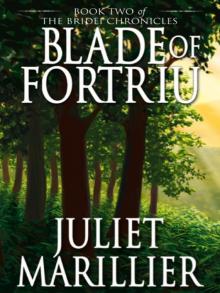 Blade of Fortriu
Blade of Fortriu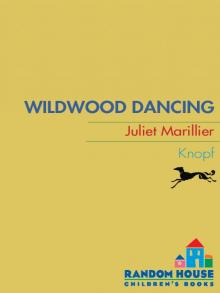 Wildwood Dancing
Wildwood Dancing Dreamer's Pool
Dreamer's Pool Raven Flight
Raven Flight Heir to Sevenwaters
Heir to Sevenwaters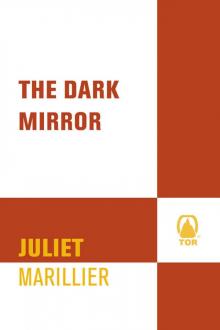 The Dark Mirror
The Dark Mirror Daughter of the Forest
Daughter of the Forest Seer of Sevenwaters
Seer of Sevenwaters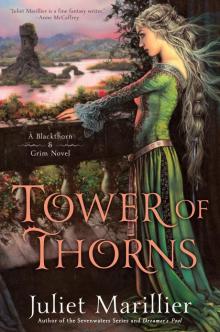 Tower of Thorns
Tower of Thorns Shadowfell
Shadowfell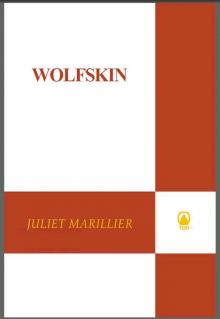 Wolfskin
Wolfskin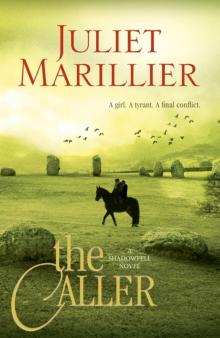 The Caller
The Caller Foxmask
Foxmask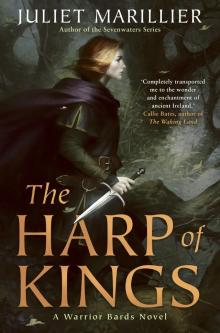 Harp of Kings
Harp of Kings The Well of Shades
The Well of Shades Heart's Blood
Heart's Blood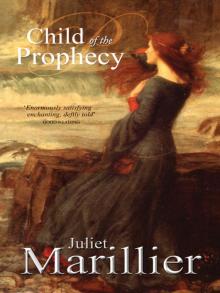 Child of the Prophecy
Child of the Prophecy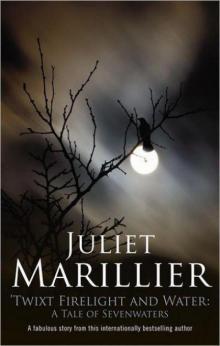 Twixt Firelight and Water
Twixt Firelight and Water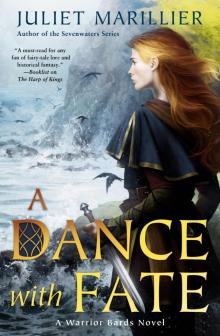 A Dance with Fate
A Dance with Fate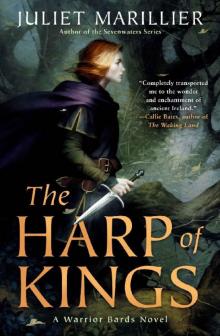 The Harp of Kings (Warrior Bards)
The Harp of Kings (Warrior Bards)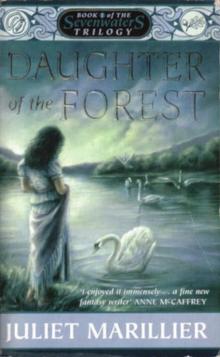 Daughter of the Forest (The Sevenwaters Trilogy)
Daughter of the Forest (The Sevenwaters Trilogy)![Sevenwaters [06] Flame of Sevenwaters Read online](http://i1.bookreadfree.com/i2/04/08/sevenwaters_06_flame_of_sevenwaters_preview.jpg) Sevenwaters [06] Flame of Sevenwaters
Sevenwaters [06] Flame of Sevenwaters![[Sevenwaters 04] Heir to Sevenwaters Read online](http://i1.bookreadfree.com/i2/04/12/sevenwaters_04_heir_to_sevenwaters_preview.jpg) [Sevenwaters 04] Heir to Sevenwaters
[Sevenwaters 04] Heir to Sevenwaters